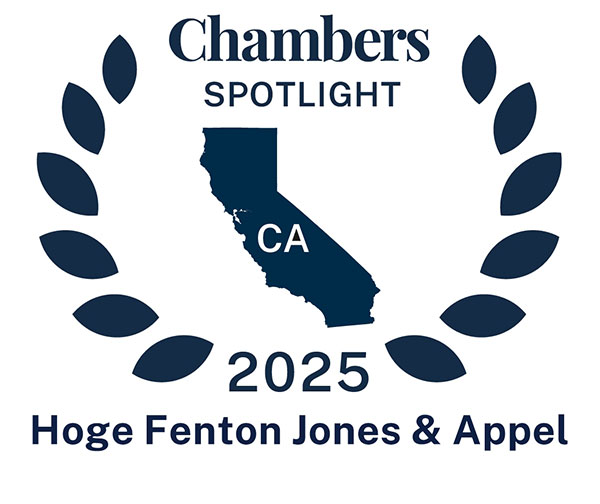California’s Qualified Commercial Tenant Protection Act is Now Law and Noncompliance Could Cost You
By Giuliana R. Ferrante | 07.29.2025 | Firm Post

California’s Qualified Commercial Tenant Protection Act is Now Law and Noncompliance Could Cost You
By Emy Quevedo and Giuliana Ferrante. Emy Quevedo is a Summer Law Clerk with Hoge Fenton. She is studying for her Juris Doctorate at the University of the Pacific McGeorge School of Law. Emy received her Bachelor of Arts in International Affairs and Economics from the University of Nevada, Reno.
On January 1, 2025, California implemented the Qualified Commercial Tenant Protection Act (SB 1103). This legislation marks a historic turning point in commercial leasing by extending residential-style protections to certain small businesses and nonprofit tenants.
If You Own or Lease Commercial Space in California, SB 1103 May Impact Your Business:
SB 1103 applies to commercial leases signed, renewed, or amended on or after January 1, 2025. The law protects a group of tenants known as Qualified Commercial Tenants (QCTs) and many small businesses in California are covered.
QCT’s are defined as:
- A business with 5 or fewer employees (including the owner),
- A restaurant with fewer than 10 employees, or
- A nonprofit with 20 or fewer employees.
To receive the protections under the law, a tenant must give the landlord a short written statement (self-attestation) confirming that they qualify (QCT notice), either when the lease is signed, renewed, or within the last 12 months. SB 1103 applies to most types of commercial property in California, including retail, office, and restaurant space. It does not apply to residential units, mobile homes, or recreational vehicles.
Here’s What Landlords and Tenants Need to Know:
It is important to update commercial lease forms to comply with the following provisions of the law, including:
1. Shared Costs Must Be Fair and Transparent
Landlords can only pass along property expenses (like maintenance, insurance, or utilities) to QCTs if:
- The costs are divided fairly among all tenants, usually by square footage;
- The landlord provides “supporting documentation” in advance with invoices or estimates;
- The costs are from the past 18 months or expected in the next 12 months;
- The method for splitting costs cannot be changed mid-lease to raise a tenant’s share without full documentation and disclosure.
2. Advance Notice Requirements for Rent Increases and Lease Terminations
For QCTs, landlords must provide:
- Rent increases over 10% require 90 days’ advance notice; under 10%, 30 days’ advance notice.
- Ending a periodic lease requires 30 days’ notice if the QCT has occupied the property for less than one year, and 60 days’ notice if the QCT has been in possession for one year or more.
- However, QCTs may terminate with notice equal to the tenancy period (e.g., 30 days for month-to-month).
3. Mandatory Translation of Leases
If lease negotiations are conducted primarily in Spanish, Chinese, Tagalog, Vietnamese, or Korean, landlords must provide a translated copy of the lease in that language – even if the tenant negotiated the lease with a translator.
4. No Waiving These Rights
Landlords cannot require tenants to waive the protections. Any contract that says otherwise is void under the law
5. Legal Consequences
Landlords who do not comply could face:
- Lease rescission,
- Lawsuits for actual damages,
- Treble damages and attorney’s fees in certain cases,
- And, delays or defenses in enforcement actions.
~Bonus Update – AB 2347 Is Also in Effect
Tenants now have 10 court days (not 5) to respond to unlawful detainer lawsuits.
What Should You Do Now?
Tenants: If you’re a small business or nonprofit, check if your business(es) qualify and make sure you’ve provided your self-attestation. Review your lease for fee disclosures and translation rights.
Landlords: Make sure your leases are up to date to comply. If you’re unsure whether a tenant qualifies, it’s better to prepare as if they do. Add clear notices to lease documents and prepare to support your expense charges with documentation.
For questions about SB 1103, or how to ensure compliance, reach out to legal counsel familiar with California commercial leasing law.

























